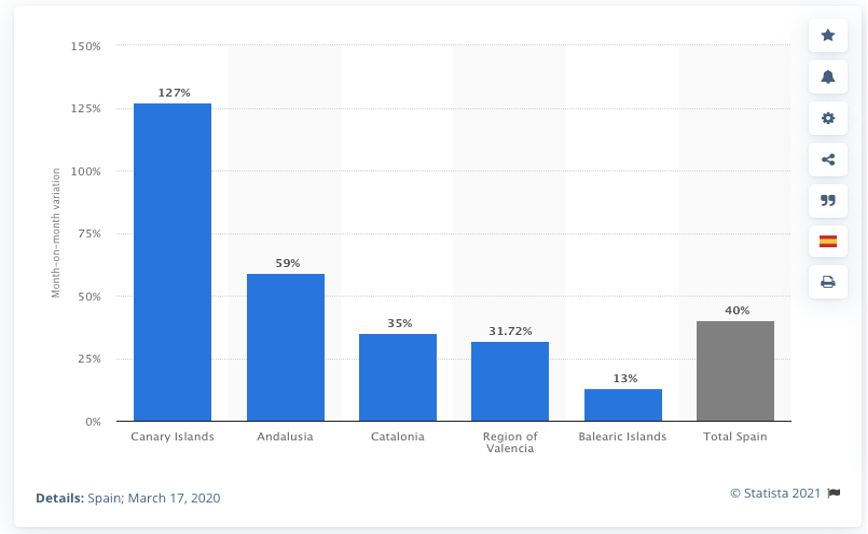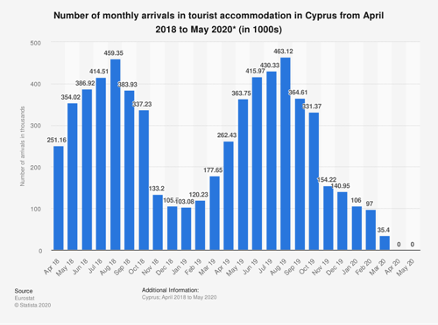By Kristi Allaj
 The European Union has been one of the most classic tourist destinations in the world. The freedom of travel for its natives and tourists visiting one continent with various cultures has allowed the EU to take advantage of the plethora of tourism. Yet, the spread of COVID-19 has had a grave impact on the EU whose 10% of GDP flows from the industry. With the spread of vaccines to fight the pandemic countries are slowly opening up their borders and some of them have invented unique plans to enhance tourism.
The European Union has been one of the most classic tourist destinations in the world. The freedom of travel for its natives and tourists visiting one continent with various cultures has allowed the EU to take advantage of the plethora of tourism. Yet, the spread of COVID-19 has had a grave impact on the EU whose 10% of GDP flows from the industry. With the spread of vaccines to fight the pandemic countries are slowly opening up their borders and some of them have invented unique plans to enhance tourism.
This article will focus on Spain, Malta and Cyprus and their divergent approaches to revitalizing a sector that provides them with a big percentage of their GDP. First, I will cover the impact of COVID-19 on the profit of the EU. Then, I will focus on the different approaches the countries are taking and, lastly, I will analyze the influence of their approaches in the tourism development sector over the EU.
How did COVID-19 affect the E.U?
Provided that each country was affected differently by the spread of the virus from 2020 to present, the EU as a whole system is experiencing a recession. The perpetual lockdown of borders in the Union created gaps in a system already struggling over unification and cohesiveness in policies that benefit, similarly all its members.
Academic research suggests some EU countries were hit more than others based on the stringency lockdown measures, their economic structure, public indebtedness and the quality of governance; those countries were mostly in the South. In July of 2020, the EU created a COVID-19 fund to help the Union recover, at last showing cooperativeness after months of independent survival. This physical separation that occurred in the months between hollowed the economy of countries which suffered already economically or governmentally.
Spain: The results of COVID-19 and the country’s dichotomous solution
Spain was one of the most affected countries during the COVID-19 crisis. The country’s economy decreased 11% during the time as a result of its lengthy three-month confinement. This naturally froze Spain’s economy, whose exports have been slowly growing but whose government is facing changes with the introduction of far-right parties.
The tourism industry that brings in almost 13% of Spain’s GPD faced one of its hardest years. In order to better comprehend the negative impact in the tourism industry, Table 1 below showcases the cancellations of hotels in March 2020 in Spain’s regions. The Canary Islands faced the highest cancellations that month at 127%, with the region of Andalusia following suit. Together all the regions shown amounted to 40% of hotel cancellations solely in the month of March.
Table 1

Source: Statista 2021
In particular, the country has applied unique rules to its tourism sector. Until March 2021, it was noted that residents of Spain could not travel from one region to another, while foreign tourists were allowed to do so, as long as they possessed a negative COVID-19 test. This situation amounts to the factor that rules on tourism are being made by regions rather than on a national level. The need to replenish the tourism sector is a driving force on governmental decision making. The distinction of tourists and locals has created a grievance in its nationals, who cannot travel freely inside their own country.
Malta: The results of COVID-19 and the country’s ‘giving’ approach
Unlike Spain, Malta a small island country is paying tourists to visit. Taking this approach in the hopes that it will make the country more competitive on the market, considering around 42% of its population is vaccinated with their first dose. Malta, whose almost 15% of GPD consist of the tourism industry will be paying independent tourists up to €200 if they stay in the country for more than two nights.
Significantly, in the latest years Malta’s economy has been growing at a steady pace. But this economy has been heavily based in the service sector that has definitely been wounded by the pandemic. The International Monetary Fund (Grima et al., 2020) calculated that Malta’s economy would falter by 2.8% in 2020 but would be rejuvenated by 7% in 2021. Malta is expecting 35,000 visitors in summer 2021.
Paired with the calculations presented below on Table 2 on how much the tourism industry would be benefiting per tourist that remains for two nights, the prospects seem high – if Malta is able to accumulate at least 35,000 visitors this summer. The table below presents what is paid on average for hotels, transport and meal in Malta. Altogether they would amount to €156.00 for two days. For 35,000 visitors that would amount to €5,775 000: a wind of fresh air for the economy.
Table 2

 Source: Author; Data: BudgetYourTrip
Source: Author; Data: BudgetYourTrip
Cyprus: The results of COVID-19 and the daring deal
Cyprus also an island country, due to its ongoing political concerns faced the virus differently. Cyprus holds a de facto partition between the South and North, divided into Greek Cypriots and Turkish Cypriots accordingly. Meanwhile, two territories of the country are administered by Britain. To that end, the country has a complicated governance.
Hence, when the pandemic crisis occurred the regions were affected differently. The hardest hit was taken by the North region, whose people demonstrated a colossal need for welfare. Rising from an average of 5,000 people to 60,000. However, Cyprus still remains under the governance of the Republic of Cyprus, resulting in an efficient and immediate close down of the borders when the pandemic began. This ensured the safety of its natives and lower cases compared to other countries. However, similarly to other countries, the closing down of the borders stirred the country’s economy whose 22.7% of GDP is based on the tourism industry.
A pioneer in the new COVID-19 regulations Cyprus’ officials have offered to pay for the full trip (excluding flights) if a visitor contracts the virus while there. Notably, the country has prepared a hospital solely for any COVID-19 cases and “quarantine hotels” for anyone having come in contact with the patient. This way the country is hoping to attract tourism and maintain a sense of security, saving it from its zero number visitors seen on Table 3 for the months of April and May.
Table 3

Source: Statista 2020
Conclusion: Advantages and Disadvantages
After analyzing all three countries and dissecting the results of the virus in their economy as well as the measurements they are taking in order to attract tourism, it is safe to say that they all have very different approaches. Their approaches rise as a result of their differences in governance and economy. The COVID-19 crisis has led them to make quick decisions in order to rebirth the economy. The EU fund although it may benefit them temporarily, won’t provide permanent comfort. And it is this quickness in filling the cracks that were made, that play one of the biggest disadvantages on an intranational level. The height of the pandemic drove each country to individualize and stray away from the EU model, providing for themselves rather than excavating solutions together as one nation, showcasing the fragility of the European Union’s unification.
As Secretary-General Antonio Guterres stated on his Policy Brief speech “This crisis is a major shock for developed economies, but for developing countries, it is an emergency.” The European Union’s supranational reputation has been hurt but its economy may not so much if in the end each country is able to replenish their economy – even separately.
Note: This article gives the views of the author, and not the position of the Euro Crisis in the Press blog nor of the London School of Economics.
Kristi Allaj is currently earning her BA in International and Intercultural Communications with a minor in Political Science at Baruch College of City University of New York. Having moved from Europe to the United States, her main interests rest in the development of countries’ relations and the adaptation of people of various cultures in different political environments. Follow her at @KristiAllaj.



